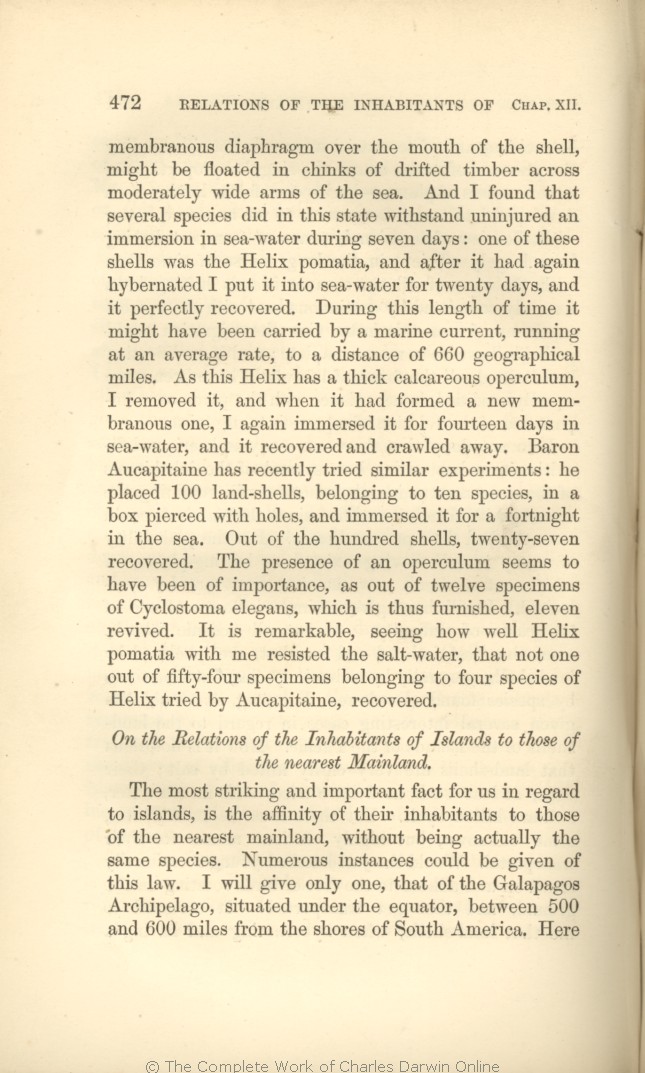membranous diaphragm over the mouth of the shell, might be floated in chinks of drifted timber across moderately wide arms of the sea. And I
found | found 1859 1860 1861 1866 1869 | | find 1872 |
| did 1859 1860 1861 1866 | did 1869 1872 |
| withstand 1859 1860 1861 1866 1872 | | withstood 1869 |
| of these shells was 1859 1860 1861 1866 |
| shell, 1869 1872 |
| and 1859 1860 1861 1866 | and 1869 1872 |
| it had 1859 1860 1861 1866 |
| having been thus treated and 1869 1872 |
| hybernated 1859 1860 1861 1866 | | hybernating 1869 1872 |
| I 1859 1860 1861 1866 | | was 1869 1872 |
| it into 1866 | | it in 1859 1860 1861 | | into 1869 1872 |
| it 1859 1860 1861 1866 | it 1869 1872 |
| it 1866 | | the shell 1869 1872 |
| current, 1866 | | current 1869 1872 |
| running at an average rate, 1866 |
| of average swiftness, 1869 1872 |
| it 1866 | | again it 1869 1872 |
| recently 1866 1869 | | since 1872 |
| experiments: 1866 1872 | | experi- ments: 1869 |
| Helix pomatia 1866 |
| the Helix pomatia resisted 1872 |
| OMIT 1869 |
| resisted the 1866 |
| the Helix pomatia resisted the 1869 |
| the 1872 |
| species 1866 1869 | | other species 1872 |
| 1 blocks not present in 1866 1869 1872; present in 1859 1860 1861 | | As this species has a thick calcareous operculum, I removed it, and when it had formed a new membranous one, I immersed it for fourteen days in sea-water, and it recovered and crawled away: but more experiments are wanted on this head.
|
|
The most striking and important fact for us
in regard to islands, is the affinity | in regard to islands, is the affinity 1866 |
| in regard to the inhabitants of islands, is their affinity 1859 1860 1861 |
| is the affinity of the species which inhabit islands 1869 1872 |
| of their inhabitants to 1866 |
| to 1859 1860 1861 1869 1872 |
| same 1859 1860 1861 1866 | | same. 1869 1872 |
| species. 1859 1860 1861 1866 | species. 1869 1872 |
| given 1859 1860 1861 1866 | | given. 1869 1872 |
| of 1859 1860 1861 1866 | of 1869 1872 |
| this 1859 1860 1861 1866 | this 1869 1872 |
| law. 1861 1866 | | fact. 1859 1860 | law. 1869 1872 |
| I will give only one, that of the 1859 1860 1861 1866 |
| The 1869 1872 |
| between 1859 1860 1861 1866 |
| lies at the distance of between 1869 1872 |
|









